Interviews
Exclusive Q&A with Phil Hubner Chief Business Development Officer at Challengermode
Retired players become media commentators, or selectors, or coaches, or the sports administrators. That is the trend in most sports.
What about esports? What do esports players do once they retire?
We have with us here Phil Hubner, the Chief Business Development Officer at Challengermode, who was a successful esports player too.
He talks about his esports playing days, his struggles to build a career, his company and the career options available of esports players in the industry.
Q. We shall begin with your esports career. How did your attention turn to esports and how it developed?
A. Like a lot of people in the industry, my introduction to gaming and esports began at a very young age. My first memory of gaming was in 1996. I was 4 years old, sitting in my 21 year old uncle’s lap, watching a screen light up with flash rockets, lasers and machine guns in Quake. And then playing my first ever casual match against my brother and my uncle’s best friend.
By 2005 I’d spent almost all of my free time playing video games, with the whole of 2004 spent perfecting my craft in DotA. That meant watching videos of the best players in the game, spending my days on IRC networks chatting with some of the top players and getting tips and tricks from them. I was part of the professional German esports organization “mousesports” which accounted for my first real experience with esports. There I managed the team’s scrimmage and tournament schedule and substituted as a player on the roster; primarily in practice matches.
A short 4 years later, Heroes of Newerth was released – the first real successor and stand-alone version of DotA. I spent my days playing at a top level, there didn’t seem to be much of a chance of making a living from esports in either game. Teams weren’t very supportive, there were no actual salaries being paid out, and the prize money wasn’t enough to sustain competitors unless they won every single tournament that ran. This was the point I decided that playing, whilst an important part of my free time, wasn’t going to be the career choice for me. I wanted to do something bigger, more impactful, and most importantly something that would allow me to pursue a full-time, paying career within this industry.
Q. Could you narrate your transition from an esports player to an industry professional? What are the challenges that you faced?
A. The first step towards making a career outside of being a player involved turning my industry knowledge into a stint in journalism. In 2010 I wrote an email to the up-and-coming esports publication ESFIWorld (now sadly defunct), arguing they should consider reporting on MOBA games like Heroes of Newerth and League of Legends. The CEO welcomed the idea and I joined the team there as a Content Director – an unpaid position – whilst finishing high school.
In 2011 I covered my first industry events – “The International”, and CeBIT, where the Intel Extreme Masters World Championship took place. I threw myself into these events, striking up conversations with the tournament operators, commentators, hosts, players and more. I recorded interviews, wrote articles, and attended after-parties – producing over 130 content pieces in a span of just 5 days. But this still fell short of “making a living” in esports. Like many people who want to turn their passion into their career, the main challenge was finding a role that could support me financially. In 2011 I was still a broke student with hardly enough money to buy food at these events. One night, our hotel room got cancelled, forcing us to go back to the hostel we had stayed the night before, who allowed us to sleep on the floor in their storage room – not the best example of a successful esports career!
But this experience did allow me to make a name for myself within the European esports industry. I wasn’t famous by any means, but I knew people. One of these people was Michal Blicharz (as of my writing this the VP of Pro Gaming at ESL Gaming) who was the man with the plan on the Intel Extreme Masters. I asked whether there were any openings for internships or junior positions within their company. Within a week I got an offer, quit school and in March 2012 – exactly a year after my first ever live esports event – I attended my first event as an intern under Michal, where I would soon become a Junior Product Manager. With a paying role under my belt, the main challenge became embedding myself fully in the rapidly growing and constantly changing industry, an industry at the forefront of digital marketing.
Moving away from the editorial side of the esports industry – In 2015 I started working with Ben Goldhaber at the time Content Director at Twitch, handling content marketing for Twitch in Europe and managing their mighty social media accounts with millions of followers. I moved to London, and shortly after pitched a new role and department to the current VP of Marketing at Twitch: International Marketing. Following this I saw many opportunities in both the rising esports industry, and the newly discovered land of opportunities that was influencer marketing – managing half a dozen streamers and influencers. This led me to my first role in Business Development in helping build up the Italian esports organization QLASH.
Q. Let’s now move to your career at Challengermode. What exactly does Challengermode offer and what’s your role as Chief Business Development Officer?
A. Challengermode is an esports platform with a big focus on the grassroots levels of competitive gaming, and a vision to make esports as accessible as possible. In effect, that means we build technology that makes playing in and offering esports competitions seamless. I joined Challengermode in 2017 as Head of Business Development, where I was largely responsible for onboarding the very first partners at the company, as well as devising the company’s partnerships and business strategy. I came to this after working in a wider variety of positions around esports, from marketing and communications to product management to business development and strategy. In my current role as CBDO I draw on a lot of that experience to translate greater accessibility in esports into greater value for stakeholders all across the esports ecosystem. I also manage two key departments within the company that deal with acquiring and then supporting partners such as game developers, tournament organizers, esports teams and brands.
Q. A number of young people become esports wizards. Could you tell us the career options available to them once they hit the esports peak and start the downhill journey?
A. I wouldn’t call it a downhill journey. I think it’s more of a natural evolution to go from player to industry professional. Hopefully my previous answer goes some way to highlighting the breadth of roles that are available in the industry away from the bright lights of being a competitor!
My experiences may be a few years old now, but if you look at the esports industry today, there are a few obvious steps one can take after putting down the mouse and keyboard (or controller) and wanting to fulfill a role within the industry with the background of being a professional player. There are many living examples of players that have turned to commentary and analysis for example. Using their in-depth knowledge of their game to dissect other players’ performances.
Another route that many have gone is to become a coach. Much like in traditional sports – years and years of playing will have honed your understanding of the game, problems for individual players to overcome and will have given you a keen read on other teams, their strategies, and their weaknesses. Similarly though, this is only the correct path for the few players that in their playing careers tend to be actively engaged in strategy and tactical choices.
For those with a more entrepreneurial nature, a common trend you’ll see is the formation of a new esports team or a company within esports that solves a problem they may have uncovered during their days as a player. You’ll find many, many such examples dating all the way back even to some of the oldest esports organizations such as SK Gaming or Ninjas in Pyjamas, but even more so in newcomers such as TSM, G2 Esports or 100 Thieves.
If none of those are the right way to go, luckily the rise of Twitch and the continued success of YouTube have provided any retiring player with an outlet and opportunity to continue their careers even beyond their competitive days. For many viewers, there’s little more entertaining (and educational) than watching players who play at the top level of their game. What’s better than getting an opportunity to directly engage with, chat, and ask questions to a retired star player?
Q. From a personal point of view, what are the advantages an esports player looking for a career in the gaming industry has, compared to a non-player?
A. Put simply – industry knowledge. Esports is still a very young industry and every year more companies enter the sector than there is talent available to staff them. Professional players, retired or not, will have some of the keenest eyes when it comes to authentically speaking to the esports audience. It’s not just an audience for them after all, it will have been their life for the past few years. This means there will always be in-roads for these individuals when looking to move into the business of esports.
Many of them however will experience a heavy reality check when starting this next step of their journey: while they may have a keen understanding of the audience, they might not have many skills directly applicable to their new roles. Be these in marketing, operations, recruiting or what have you. There’s good news though: their diligence, discipline and ability to become the best at something will easily translate into other fields outside of the games they played for so long. Besides from the industry knowledge, the soft skills are easily transferable.
Q. Again from a personal perspective, is the industry welcoming enough to the esports players? Any comments on that?
A. Whenever a professional player retires, that person should be seen as a top candidate not necessarily to join your executive team and lead the charge, but at the very least someone that will no doubt be a fast learner and someone that can intently focus on whatever is put in front of them. It is up to the universities, colleges and companies in the space to provide these paths for these players; but likewise up to these players to identify and accept where they stand within a professional context, how applicable their skills are, and where they may be lacking.
I have no doubt that anybody capable of being the best out of millions of players in any given game will likewise be capable of being the best at many other jobs and tasks thrown at them; that they will learn them quickly and learn how to excel at them, and if we do a good enough job at telling the stories of former professional players and their careers, we can give hope and inspiration to current and future pro players, whilst reassuring companies that former professional players are likely to be top-tier hires if provided the right guidance and opportunity.
Q. What are the potential roles and positions in the gaming industry that particularly suit esports players?
A. Using some of the roles I mentioned previously as examples, commentators and analyst roles lend themselves well to the kind of esports competitors that are naturally charismatic and have an ability to speak concisely. Players choosing to go down this path are often at the mercy of the audience. When it comes to coach roles oftentimes this is a natural fit for team captains, those who have been on the frontline in leadership positions before have an understanding of what different team members need and how to handle group dynamics.
Many retired players have found ways into game balance and later game design teams either for the very same games that they were once competitive in, or for new games in the same, unexplored genre. After all, who understands MOBAs better than someone who has played one for tens of thousands of hours?
Ultimately what roles in the games industry that suit esports players depends greatly on the player themselves. What skills they have and what interests them. There are myriad roles out there for players with a solid industry knowledge base to get involved across art, design, marketing, communications, business, finance etc. It all comes down to what they want to do.
Q. Finally, as someone who has experienced it from both ends of the spectrum – as a player and then as an industry professional – what are the changes you would like to have in the esports vertical in the future?
A. What may be missing today is a safety net catching and training those players that don’t fall into the categories I’ve mentioned above. Those that aren’t as entrepreneurial or self-driven, and those that maybe want to step one further step away from the game itself than a role as a commentator, analyst, coach or game designer would allow them to. I’d like to see more organisations taking responsibility for the futures of their current talent. Not just for the sake of the competitors themselves, but for the sake of the industry as a whole.
Interviews
Tom Galanis: giving a First Look at the Top of the Slots
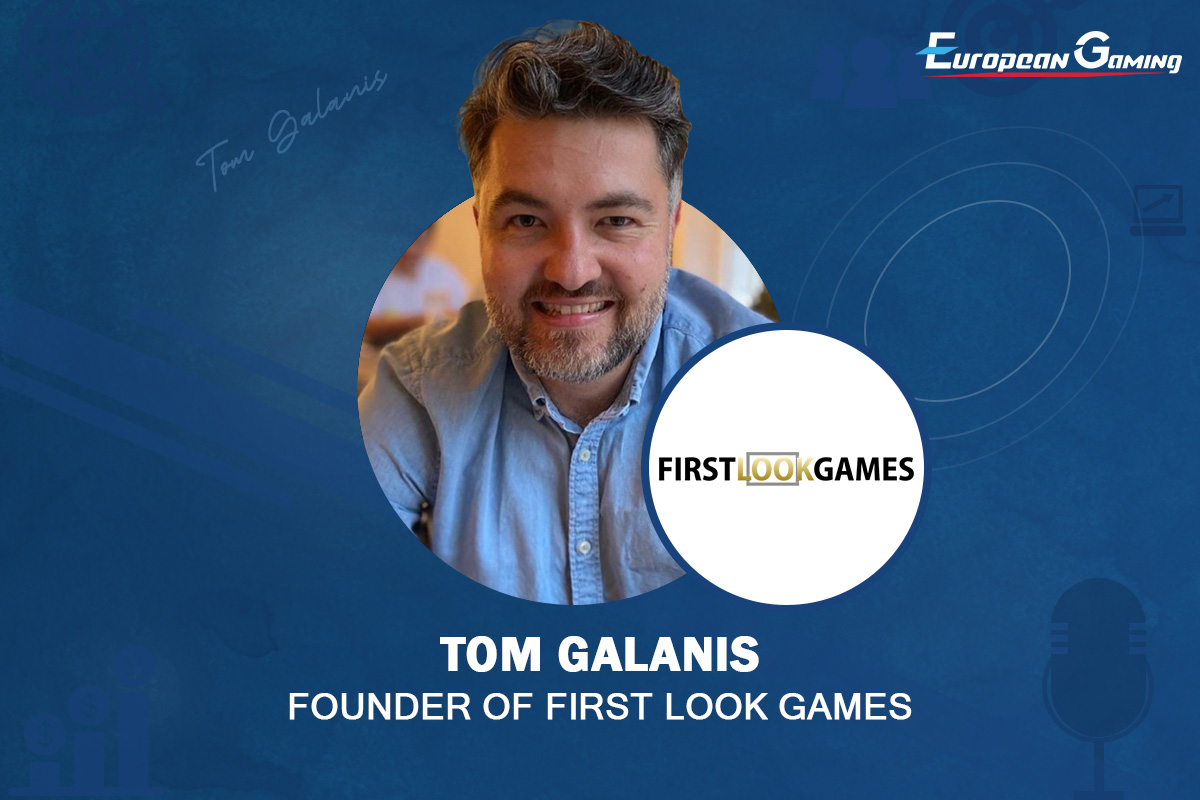
Gone are the days when we would spend a Thursday evening waiting for Top of the Pops to come on our televisions so that we could see who would be performing that week. The music show may no longer be running, but First Look Games has taken inspiration from the long-running staple and added a slot spin, to create Top of the Slots.
To give us more insight, First Look Games Founder Tom Galanis walks us through the ideation process behind Top of the Slots and how this is helping to give an accurate representation of the top-performing slot titles each month.
You launched Top of the Slots by First Look Games a couple of weeks ago. For those that may have missed the launch, what does this involve?
Tom Galanis: Top of the Slots is a showcase for the top 10 games launched by game studios via the First Look Games platform over the previous 90 days. It’s a never-before-seen take on game popularity and one our game studio partners, and affiliate users are already loving!
What was the thought process behind launching Top of the Slots?
Tom Galanis: First Look Games captures unique data for our game studio partners and Top of the Slots is designed to illustrate the most successful games, benchmarked by this unique data insight, to the industry.
What do game providers have to do to make it into the top ten releases for the month? What metrics do you use to evaluate success?
Tom Galanis: In order to make it in to the top 10, game studios need to release titles via our platform that successfully resonate with the 850+ affiliates that utilise First Look Games, making full use of the suite of tools we offer on and outside of the platform to engage affiliate marketers in the promotion of their game. The rankings are based on the First Look Games Index for all games launched to the market in the preceding 90 days, which combines:
- a) Downloads – which is the aggregated total of download sessions amongst affiliates on the platform. Affiliates download assets including logos, game sheets, video files, screenshots, banners and game artwork;
- b) Hits – this is the aggregated total number of game reviews for the game, created by affiliates using the First Look Games platform;
- c) Reach – this is the aggregated unique visitor count of the websites containing the Hits;
- d) Demo Game Sessions – this is the number of free to play demo game sessions that have taken place from iFrames placed on Hits.
- e) Sentiment Score – this is the average sentiment score from Hits
The games that rank well in this index are obviously commercially successful in their own right but are also being reviewed by affiliates because of the engagement of the game studio with the First Look Games platform, and consequently, with affiliates.
Our most active game studios are not just releasing great games with frequency but are also ensuring their game and studio news is distributed across the First Look Games platform and social channels and that a full and diverse range of marketing assets and game information is being provided through the platform prior to a game’s release. This best equips affiliates to understand the features of a game so that they can successfully convey this to their player audience, which, collectively amongst FLG affiliates, is very significant, totalling more than 20 million slots players worldwide.
Tell us a bit more about the First Look Games sentiment analysis – how is this helping to remove the biases from the ranking process? What data do you use to inform this analysis?
Tom Galanis: Once our technology has identified a new game review, First Look Games uses Natural Language Processing to ‘read’ the review and assess what the affiliate makes of the game. We share a short snapshot of this with the game studio and assign a score to the review based on how positive the affiliate has been in their review of the game. The more positive the language used in the review, the higher the score.
Sentiment scores are then aggregated across all reviews of the game to give a score for the game, and across all games to give the studio a score to benchmark against peers. Using AI, we are able to objectify the subjective to provide true 360 analysis on how affiliates are promoting a game.
What can we expect to see from First Look Games for the remainder of this year?
Tom Galanis: We have a perpetual roadmap of both new studio launches and technical advancements of the platform for affiliates and game studios to look forward to!
The post Tom Galanis: giving a First Look at the Top of the Slots appeared first on European Gaming Industry News.
Interviews
Exclusive Q&A w/ Steven Paton, Commercial Director at Wise Gaming
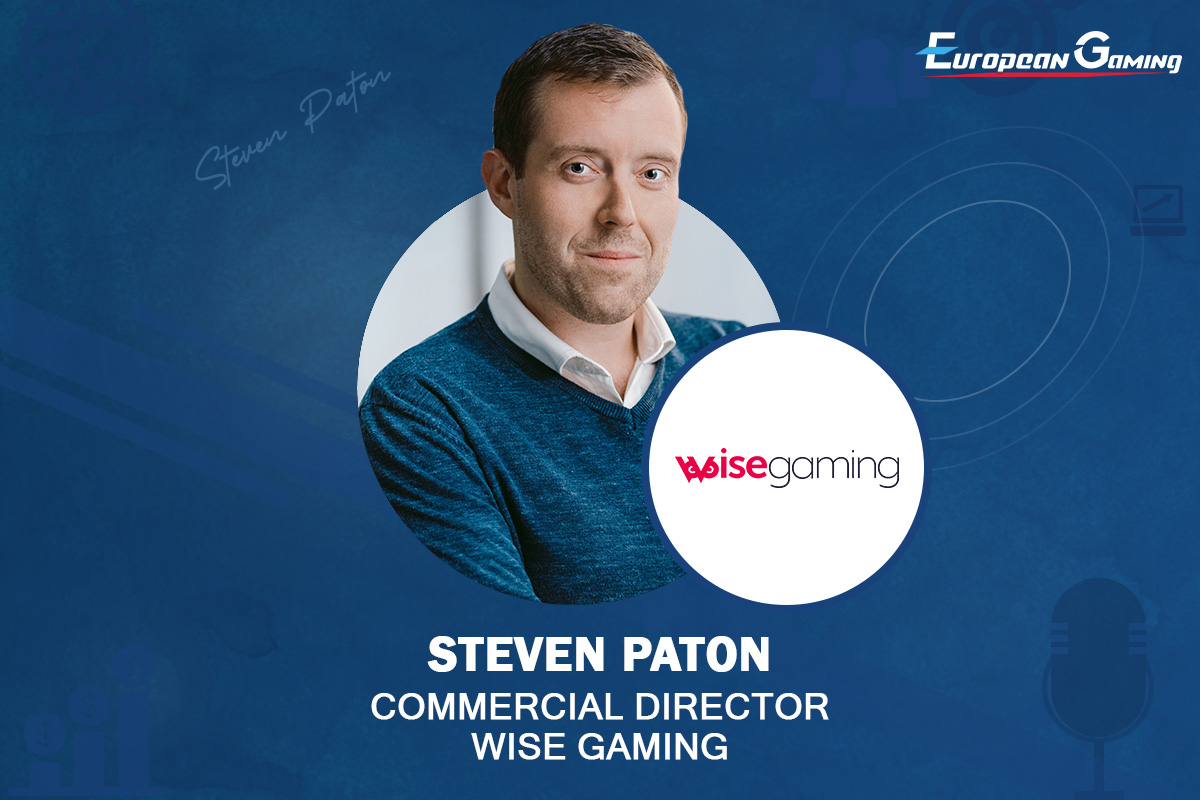
Could you describe the range of products and services that Wise Gaming offers? What makes them unique or appealing to potential clients?
Wise Gaming is the fastest-growing, Complete platform offering both White-Label & Turnkey Solutions. The Wise Gaming solutions are built from our team’s extensive experience: 15 years B2C and 10 years B2B. We know the importance of a truly modular approach, allowing our partner the ability to obtain our entire solution or individual components to enhance what they already have.
In what regions or markets does Wise Gaming primarily operate? Are there any plans for expansion into new territories?
Our focus has been on both the European & LatAm Continents. With enormous success in our B2C operations, we are relying on our extensive experience. We believe the balance between established & emerging markets brings both knowledge and the ability to learn and adapt, truly focusing on our partners needs without limitations.
2025 will be Wise Gaming’s year of expansion! 2024‘s goal is about building on our success in EU & LatAm whilst planning next years’ growth in both Africa & Asia.
What technologies does Wise Gaming employ to deliver its iGaming solutions? Can you highlight any proprietary technologies or platforms that differentiate your offerings?
From our 15 years of B2C success, we felt that we understood both the pleasure points and pain points that most operators face on a daily & weekly basis. Therefore, we build our Wise Gaming solutions with a customer-centric approach, How can we support our partners to support their customers. We diligently sourced the industry’s best-in-class providers for both our Sportsbook & Casino content, utilizing Enterprise software to provide the most robust offering in the iGaming industry.
Our dedicated in-house teams visualize, build and enhance our Proprietary systems for each of our Partner’s needs, making each of our partners brands Unique.
In what ways does Wise Gaming prioritise security and data protection within its technology infrastructure?
As previously mentioned, our customer-centric approach is vitally important to Wise Gaming and our Partners! Providing the correct technology and experience to our partners is key to having a successful KYC, AML, Due Diligence and Data Protection process. We opted for Amazon AWS solutioning to provide market-leading security, Encrypted databases & data storage, penetration resilience, DDoS attack elimination, dedicated Back-Office segmentation and User-based access, protecting player data while safeguarding our partners operations.
What are the current trends or challenges you’re seeing in the iGaming market? How is Wise Gaming adapting to these changes?
The speed in which technology advances is always a challenge for any provider. The key is to know your markets, the players, the accessibility of online entertainment such a sports betting & casinos and implement the technology that meets these variables. Everyone is talking about AI & Machine learning, and rightly so! With such advancements AI & Machine Learning models, it would be irresponsible not to utilize them. Whether it’s for Player customisation, Events based recommendation or supporting operational needs such as RG, KYC & AML, AI & machine Learning should be used to ENHANCE human interaction, not replace. At Wise Gaming, we have already implemented AI & Machine Learning models to provide the unique edge to our partners.
Also localized content is important. Every market is its own unique playground with their own specific cultural identities. Knowing these identities and becoming an expert in these will not only assist in the acquisition of players, it signifies a brand’s genuineness and authenticity to that market and allows greater player retention. At Wise Gaming we have already implemented A.I & Machine Learning models
How does Wise Gaming ensure compliance with regulations in various jurisdictions? How important is regulatory adherence in your sales approach?
I will answer these 2 questions together. The market is experiencing a shift in regulation, and compliance. MGA & CGA license domination has been challenged, with more and more markets opting for tighter safety measures and implementing their own self-regulated approach. This brings safety to players and trust.
Working alongside regulators will always help, and more importantly, we can learn from each other. Adhering to regulation is ultimately for a player’s safety and that is paramount for the industry’s longevity. Wise Gaming continuously enhances its platform to conform with regulations, making it safe and reliable for our partners.
What are the key factors potential clients considering when choosing an iGaming provider, and how does Wise Gaming address these factors in its offerings?
As previously mentioned, experience and knowledge are key attributes from both an operational and technical aspect. “You can’t plant apple trees and expect to get oranges!” Wise Gaming’s experience & knowledge puts us, and our partners, at the forefront of each market, allowing substantial growth and higher ROI.
Time to market should also be a priority. Whilst most Providers offer 2-4 months implementation time, Wise Gaming can deploy your platform within 2-4 weeks, giving us the competitive edge in a highly competitive space.
How does Wise Gaming incorporate feedback from clients into product development and improvement?
Experience and knowledge are simply 1’s learning over time. Our approach at Wise Gaming is that of a learning mentality, “you are never too old to learn!” iGaming is rich in experts – We trust our Partners, and they trust us, it’s the unification that builds long-term partnerships. We have 2 ears and 1 mouth, use them in that order!
What are the future goals and plans for Wise Gaming? Any upcoming innovations or developments you can share?
Our goal is to continue providing a reliable and robust platform, listening and delivering an innovative and unique solution for each of our Partners.
Innovative Developments – If we tell everyone, they won’t be innovative 😉 However, what I can say is that we are focused on “advanced”, real-time localised AI recommended content both Casino & Sportsbook.
The post Exclusive Q&A w/ Steven Paton, Commercial Director at Wise Gaming appeared first on European Gaming Industry News.
eSports
eSports in the CIS region , Q&A w/ Viktor Block, Senior Sales Manager/PandaScore

Esports has long been popular in the CIS region, with various top-tier teams and players all calling it home. How has the landscape evolved over the last few years? Have any particular trends emerged that have surprised you at all?
Esports boomed in the CIS region in 2008 when Multiplayer Online Battle Arena (MOBA) games became really popular. While esports had been a thing as far back as 2003, the rise of games such as Counter-Strike and DOTA2 was a major catalyst for the upward trajectory the sector has been riding ever since. In recent years, the infrastructure needed to support esports has improved drastically across the CIS region, including the construction of the Pixel Esports Arena in Minks, Belarus, and the Cyberspace Arena in Almaty, Kazakhstan, both of which hold top-flight contests. Internet connectivity has also improved, while support from local and international sponsors such as Monster Energy, Red Bull and War Gaming have provided funds for further investment while also driving awareness. Ultimately, this has seen the landscape evolve into a thriving industry with lots of opportunities for further growth.
In terms of trends, and especially relating to esports betting, I’ve been surprised by the high demand for betting on console games – we call them eBattles and they include disciplines such as eSoccer and eBasketball. I think this is just a natural development that has occurred off the back of strong demand for video game content, which is often the bridge between traditional sports and esports.
What factors have contributed to esports’ growth in the CIS over the past few years?
One of the biggest factors for me is that teams have become more professional and are now training and playing in well-run clubs. This takes place in dedicated buildings and rooms, set up with high-speed internet and the absolute best gaming equipment. Player salaries have also gone up, which has increased the calibre of players taking part in contests across the region, taking competitiveness to the next level. Today, many CIS players now play for high-ranked teams such as Virtus.pro, Team Spirit, Betboom or Na`Vi which compete on the international stage. This in turn is helping esports grow across the CIS region.
Given how many countries are in the CIS region, can you walk us through some of the biggest regulatory differences when it comes to betting on esports? And how does PandaScore navigate these changes?
The legality of betting and esports betting differs from country to country within the CIS region. Some are super strict or even prohibit gambling, while others take a more liberal approach, regulating the activity and licensing operators. Let’s take a look at some of the biggest markets and their approach.
In Ukraine, esports has been recognised as a sport since 2018 and in 2020 the country regulated and licensed gambling for the first time. The law focuses mostly on standard betting – sports and casino – but is likely to also include esports betting given that esports is a recognised sport in the country with tier-one Ukraine sportsbooks like Favbet and Parimatch offering it to their players.
Kazakhstan has a growing gambling industry with betting shops and casinos operating in major cities such as Almaty and Nur-Sultan. Gambling is regulated by the Ministry of Culture and Sports and while the regulatory framework is somewhat restrictive, sports betting – which is likely to include esports betting – is permitted.
Navigating the constant changes in betting regulation across the CIS region can be challenging, so we make sure to keep up to speed with the latest developments by monitoring legislative updates and amendments to regulatory guidelines. We also track industry trends and best practices to anticipate regulatory changes ahead of time, allowing us to adapt quickly if needed. This can involve benchmarking against competitors, attending conferences and networking with key stakeholders.
In your view, are there any unique opportunities for the expansion of esports and esports betting within the CIS region? And how does this differ to other regions?
It’s important to understand that CIS, especially Ukraine and Kazakhstan, play by their own rules. By that I mean they are very different to other esports markets, so don’t think what works in Italy will work in Ukraine. For example, while League of Legends is very popular in Europe, in CIS, it’s Dota 2 that takes the top spot. But for those who can understand the region and each market, there are plenty of opportunities to explore.
Let me elaborate. Dota 2 is thriving in the broader CIS, with regular tournaments and events attracting large audiences both offline and online. teams like Natus Vincere (Na’Vi), Virtus.pro and Team Spirit have achieved significant success in Dota 2 competitions, contributing to the game’s popularity in the region. While Dota 2 is big, other video games also enjoy significant popularity, including CS2, World of Tanks and Fortnite among others.
Operators need to consider this when deciding their markets and odds, marketing strategies and plans for player engagement.
What would you say is the key to creating a successful esports product for a CIS audience?
Understanding layer preferences in each market and delivering an experience that exceeds their expectations. For the CIS region, this means focusing on Dota 2 – this is a game that offers deep and strategic gameplay requiring teamwork, communication and skilful execution of plans and strategies. Its competitive nature appeals to gamers as they enjoy the challenge of multiplayer experiences – this goes back to the original MOBAs back in 2008. These factors must be present in the esports betting experience offered to players – at PandaScore, this means a comprehensive Dota 2 offering that covers markets such as Kills, Towers, Roshans and Barracks, with players able to challenge themselves in a betting competition against others.
Support is also key to delivering a quality player experience. We offer round-the-clock assistance and are regularly rolling out updates to improve the experience players receive when betting on esports at sportsbooks using our data, odds and betting tools such as our Bet Builder. We are always working hard to expand our offering to cover the most in-demand games including CS2, Valorant, Call of Duty and many more.
What trends or developments do you anticipate shaping the future growth of esports in the CIS region over the next few years?
The industry will continue to grow and become more professional. Esports is different to traditional sports and it still lacks recognition in some markets, even though it is considered an official sport in a growing number of countries across the CIS region. I think as it evolves, more governments will provide more support for esports as it brings tremendous economic, cultural and social benefits. This could include funding for esports initiatives, rolling out regulatory frameworks, helping to foster partnerships with esports organisations or simply recognising it as a sport.
The continued proliferation of smartphones across the region will be a further catalyst for esports growth. Titles such as PUGB Mobile, Free Fire and Mobile Legends: Bang Bang will attract large audiences and provide new opportunities for teams, players, sponsors and other stakeholders to explore. This is a really exciting time for esports and esports betting in the CIS region, and PandaScore is thrilled to be part of it.
The post eSports in the CIS region , Q&A w/ Viktor Block, Senior Sales Manager/PandaScore appeared first on European Gaming Industry News.
-

 Australia4 weeks ago
Australia4 weeks agoCrown Approved to Retain its Melbourne Licence
-
Africa2 weeks ago
BMM Testlabs Continues Its Expansion in Africa with New Licenses in Botswana and Nigeria to Test Land-Based and Digital Products
-
Australia3 weeks ago
VGCCC Fines Bookmaker MintBet $100,000 for Repeat Breaches of its Responsible Gambling Code of Conduct
-
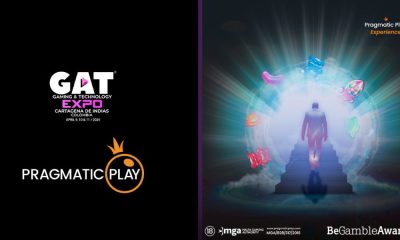
 GAT Expo4 weeks ago
GAT Expo4 weeks agoPragmatic Play Prepares for GAT Cartagena Gaming Week 2024
-
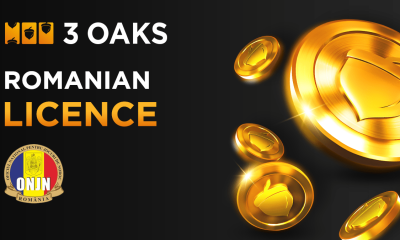
 Compliance Updates3 weeks ago
Compliance Updates3 weeks ago3 Oaks Gaming extends European reach with Romania licence
-
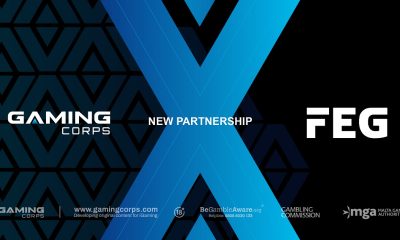
 Central Europe3 weeks ago
Central Europe3 weeks agoGaming Corps makes key European addition with Fortuna Entertainment Group partnership
-

 Press Releases1 week ago
Press Releases1 week agoOpenBet Powers Record-Breaking 100,000+ Peak Bets per Minute at Grand National 2024
-

 Africa3 weeks ago
Africa3 weeks agoIESF African Regional Qualifiers Host Announced




